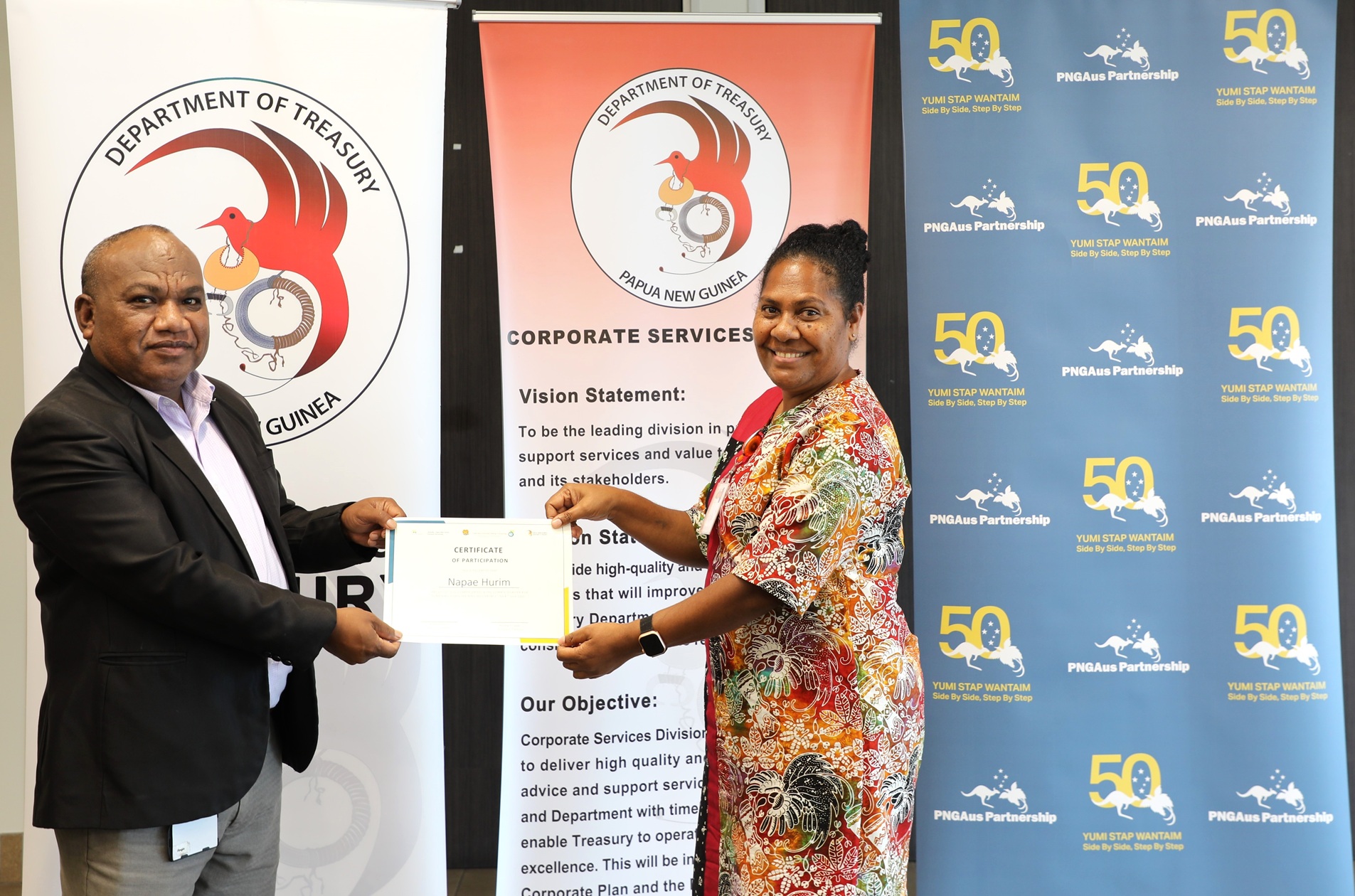As the effects of climate change intensify, it has never been more important to ensure climate and disaster risk is considered in planning major public investments like roads and energy networks.
That is why Australia has been supporting training for senior Papua New Guinean Government officials on screening for climate disaster risks in key investments before approving projects through the annual budget process.
Under the initiative, 53 officials from the Department of National Planning and Monitoring (DNPM) and the Department of Treasury – more than a third of them women – undertook training sessions from July to September. The training focused on the importance of ensuring that public investments are not only climate smart but also inclusive, considering the needs of everyone, including those with disabilities.
Treasury Deputy Secretary Napae Hurim, and Department of National Planning and Monitoring Deputy Secretary Roger Kara, led the involvement of both Departments in the tailored training.
Deputy Secretary Hurim described the training as an “eye-opener” and valued the real-life examples from across the region.
“Prior to this, no one really had participated in training on how to put on a climate lens and look at the proposals that were in front of us,” Hurim said.
“We hope that we can take what we have learned from this training forward and make it grow, change it, amend it to suit our local environment.”
Nathan Gabriel, Senior Programming and Monitoring Officer at DNPM, also attended the training and believes it will help to create a new generation of climate-aware decision-makers.
He said the training had given him a deeper insight into planning, programming and budgeting major public investments.
“Climate disaster risk has a multiplying effect on everything - our daily lives, even government investments - it has an implication on them. And the cost of a disaster is significant,” Gabriel said.
PNG is the first country in the Pacific to secure access to the International Monetary Fund (IMF’s) Resilience and Sustainability Facility (RSF).
Australia’s training support helps to operationalise PNG’s reform efforts to develop a methodology for climate disaster risk screening under the IMF RSF.
The training is focused on building knowledge and practical ways of implementing climate risk screening by DNPM and Treasury staff, which improves the quality of public investment proposals and aims to limit the fiscal costs of risks of this nature.
Through this targeted and tailored training, Australia is supporting PNG’s efforts to build a more climate-resilient future for all Papua New Guineans.
Ends.

Department of National Planning and Monitoring Deputy Secretary Roger Kara and Treasury Deputy Secretary Napae Hurim attended the first training and remarked that the session provided new perspectives.
For further information, including access to related materials, please contact the Australian High Commission media team: +675 7090 0100
